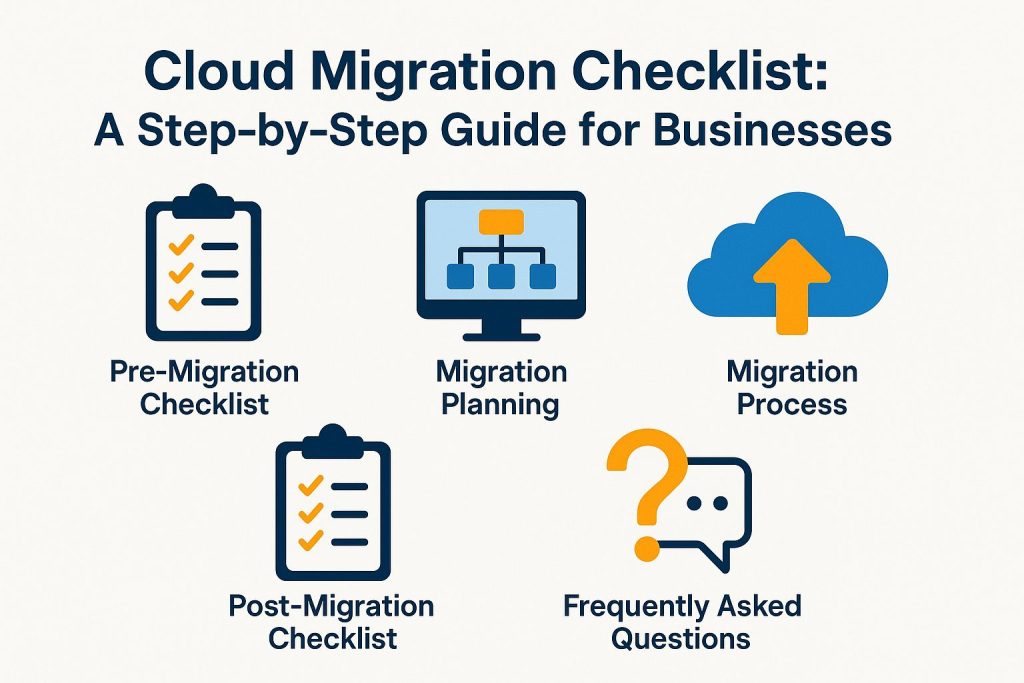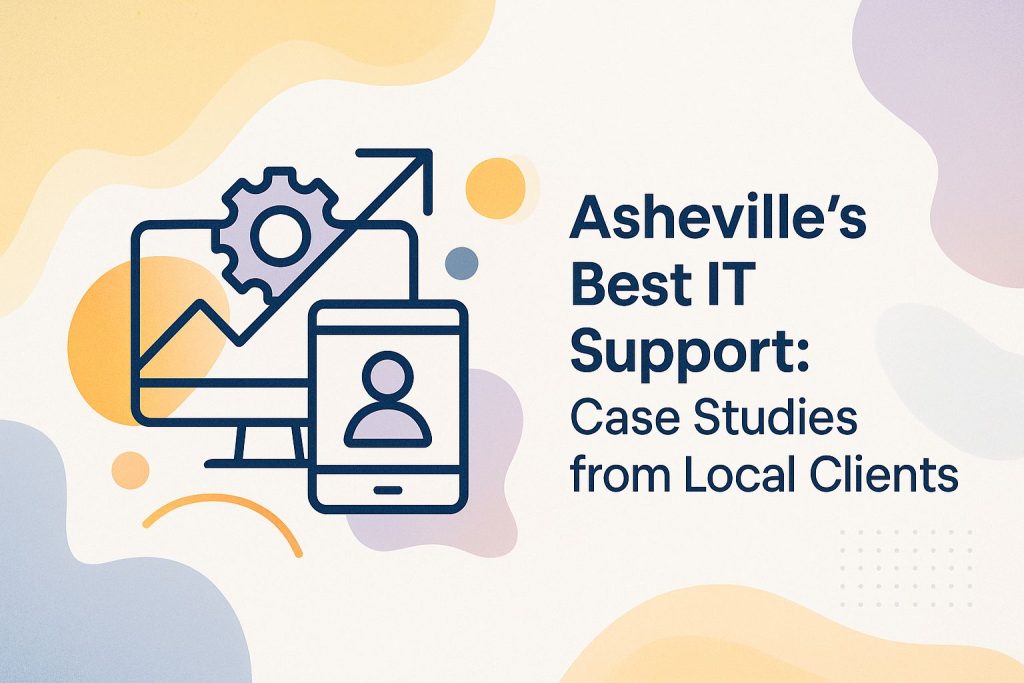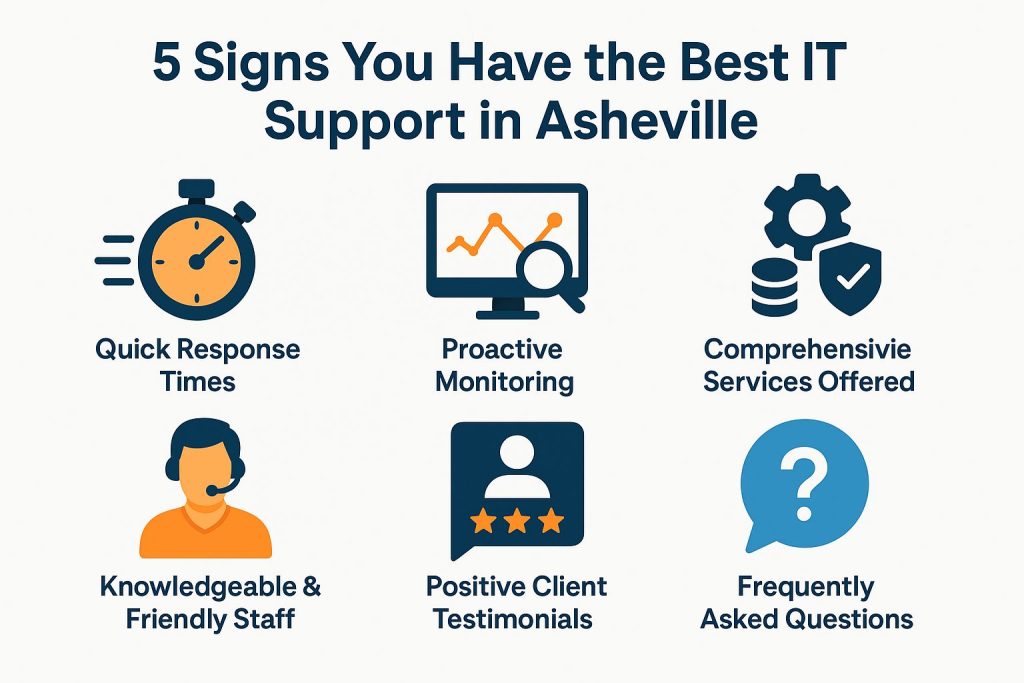Cloud Migration in Asheville: Why It’s Easier with Local Expertise
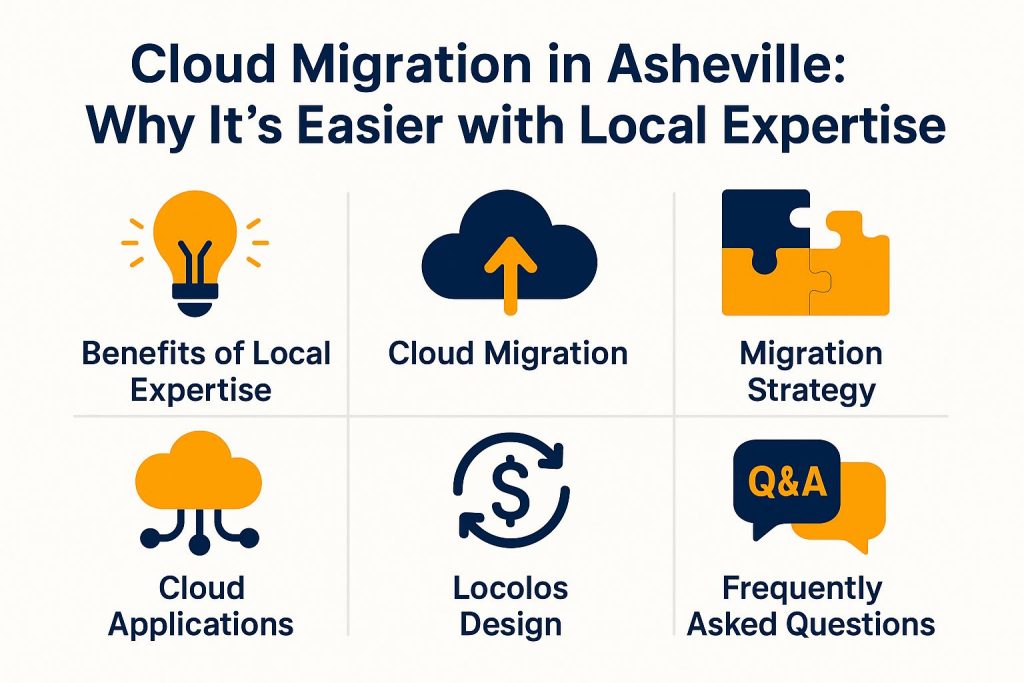
Businesses in Asheville are adopting cloud solutions. Migration can be complex. Local expertise makes this transition easier. It also aligns IT strategies with local business needs. This article explores the benefits of local professionals. It addresses common obstacles and outlines steps for a successful migration. Real case studies from Asheville enhance these points.
Benefits of Local Expertise and Cloud Services
Using local expertise in cloud migration helps create tailored solutions. These solutions align with market needs, regulations, and digital goals. By leveraging strategic decision-making processes, these tailored solutions can significantly enhance project success. Learn more about how IT consulting can guide your digital transformation effectively.
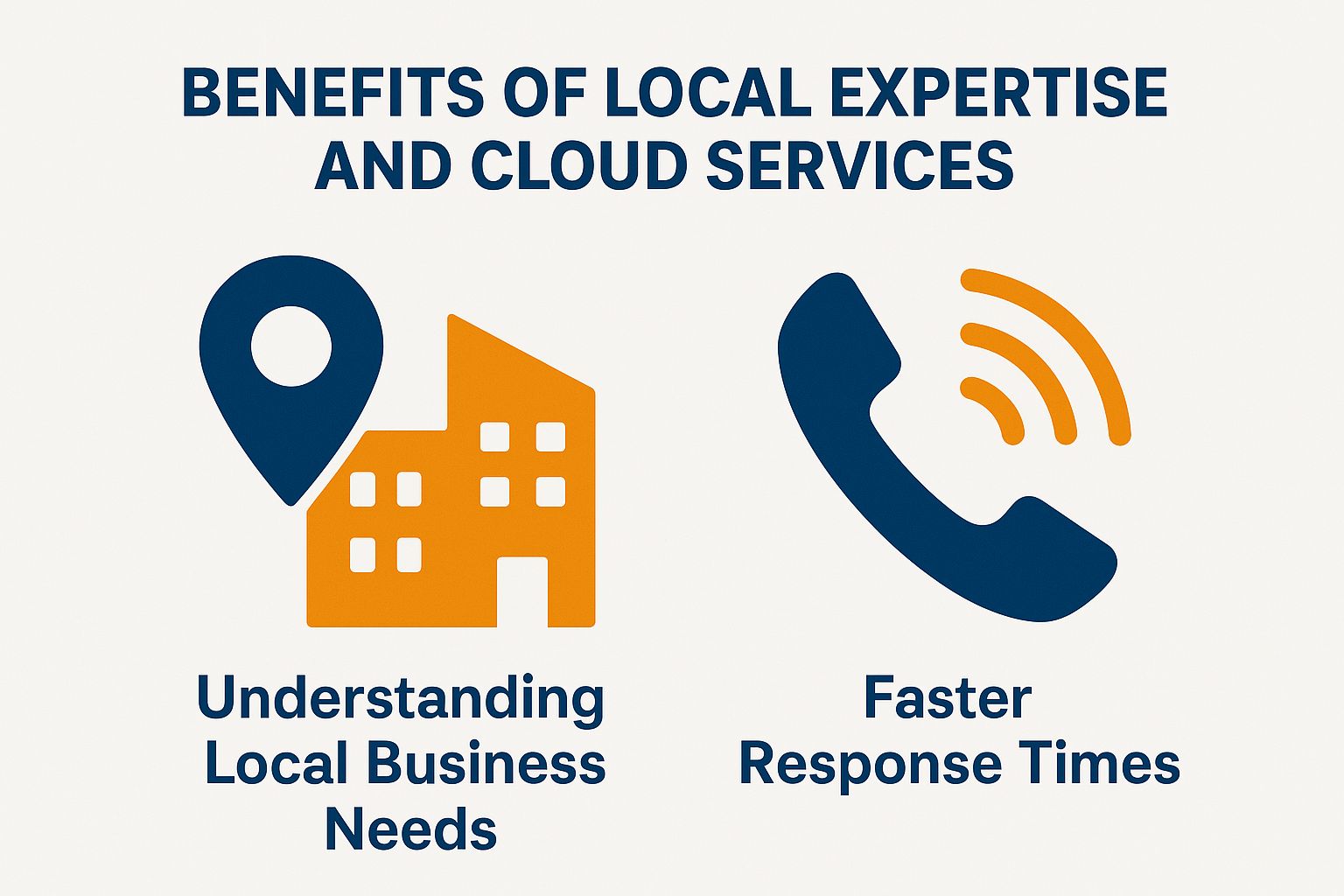
Understanding Local Business Needs
Local IT firms know Asheville’s business landscape. They can effectively customize cloud solutions to meet client needs through IT consulting and cloud services.
For instance, a local firm may develop a tailored customer relationship management (CRM) system that integrates seamlessly with existing tools, addressing the client’s unique sales processes.
These firms provide cloud storage solutions that comply with local regulations. They ensure data security and accessibility. By leveraging tools such as Microsoft Azure for flexibility and Amazon Web Services for scalability, local businesses can improve their operational efficiency.
This local understanding allows firms to create custom solutions. These solutions address immediate challenges and adapt to changing client needs, supporting continuity and efficiency.
Faster Response Times
Hiring local IT firms leads to faster responses for technical issues. Companies can reduce downtime by up to 50% compared to national providers. This speed is crucial. Many local firms resolve technical issues in an average of 2 hours. Larger national companies may take 4 to 6 hours.
Quick responses reduce disruptions and improve customer satisfaction. Regular collaboration with local teams cultivates a deeper understanding of specific business needs, thereby streamlining operations further.
It is advisable for businesses to prioritize partnerships with local experts to enhance their responsiveness and operational efficiency. This strategic approach can ultimately lead to improved service delivery and a stronger bottom line.
Challenges of Cloud Migration and Migration Strategy
Cloud migration presents challenges. These include data security concerns, compliance issues, and possible service disruptions during the transition. A strong migration strategy is necessary.
To effectively address these challenges, strategic planning is essential.
Organizations should begin by conducting a comprehensive risk assessment to identify sensitive data, compliance requirements, and develop a migration strategy pertinent to their specific industry.
Subsequently, selecting a reliable cloud service provider equipped with robust security measures, data encryption protocols, and efficient infrastructure management is critical.
Prepare a detailed migration plan that includes testing phases to reduce service interruptions.
Using tools like AWS Migration Hub help streamline the migration process. It provides visibility into ongoing transitions, ensuring smoother outcomes and effective project management.
Additionally, it is important to train staff to adapt to new systems and processes, thereby reinforcing the organization’s commitment to achieving a successful migration.
Steps for Successful Migration and Solution Design
A successful cloud migration requires a well-organized strategy that includes assessment, detailed planning, and precise execution to ensure a smooth transition. Our cloud migration checklist provides step-by-step guidance through each stage.
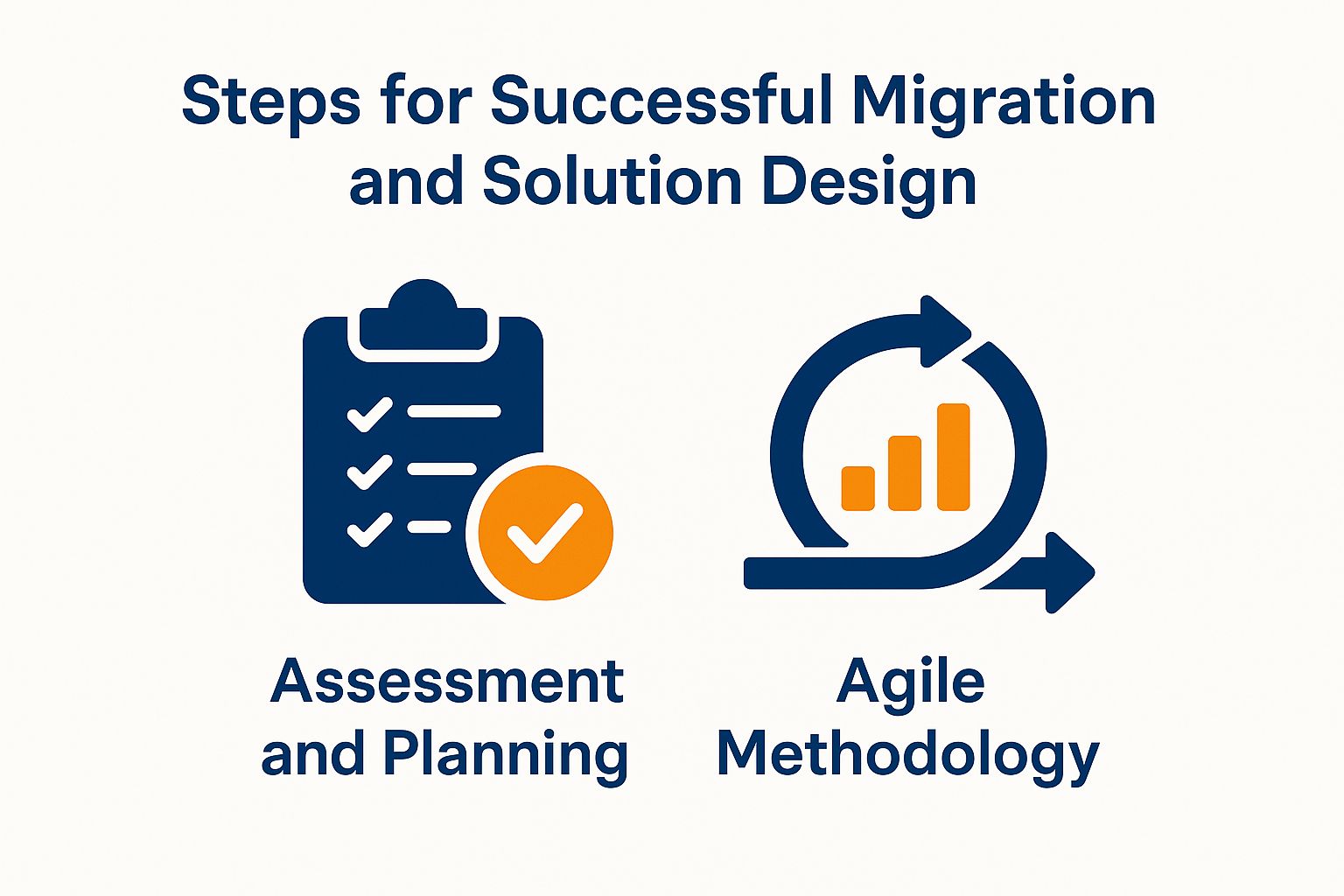
Assessment and Planning with Agile Methodology
The assessment phase evaluates the current IT infrastructure. Clear objectives are defined. A migration roadmap is established, considering budget, resources, and technology adoption.
Begin by creating an inventory of existing assets. Document all hardware, software, and services in use. Tools like AWS Migration Hub help visualize the environment and track migration progress.
Define success metrics that align with organizational goals. Include acceptable downtime limits and specific performance benchmarks. Develop a detailed migration roadmap outlining each stage from testing to full deployment.
Prioritize tasks based on critical business functions. Allocate resources effectively during migration. Use collaboration tools for efficient execution.
Case Studies in Asheville: Cloud Applications and Local Economy
Studying successful cloud migrations in Asheville gives insights into effective strategies and local success stories. These exemplify best practices.
One notable example is Moog Music, based in Asheville, which transitioned to Amazon Web Services (AWS) to achieve robust scalability and enhanced data security. They implemented AWS CloudFormation to automate infrastructure management, resulting in a 40% reduction in deployment times.
Another success story is Asheville-Buncombe Technical Community College, which adopted Microsoft Azure for their student management systems, leading to improved access and collaboration among staff. Following the migration, they reported a 25% increase in operational efficiency.
These organizations illustrate that selecting the appropriate cloud tools tailored to specific needs can significantly enhance performance and productivity. It’s worth exploring the future of IT infrastructure in Asheville’s business landscape. This resource provides valuable insights into how the region is evolving and adapting to the latest technological advancements.
Frequently Asked Questions
What is cloud migration and why is it important for local IT firms in Asheville?
Cloud migration moves data, applications, and other business elements from on-premise servers to a cloud-based infrastructure. It is important for Asheville businesses to increase efficiency and scalability.
How can local expertise make cloud migration easier in Asheville?
Local expertise means understanding the unique needs and challenges of the region. This expertise tailors cloud migration to Asheville’s business environment, making the process smoother.
What are the benefits of hiring a local cloud migration expert in Asheville?
Hiring a local expert offers benefits such as knowledge of the local market, faster response times for issues, and understanding of regulatory requirements.
What challenges can arise during cloud migration in Asheville?
Businesses may face challenges during cloud migration, like understanding local infrastructure, disruptions to operations, and data security concerns. A local expert can help mitigate these challenges.
How can a local cloud migration expert help with data security in Asheville?
A local expert can provide insights into the specific data security regulations and requirements in Asheville, and help businesses ensure that their data is protected during the migration process. They can also offer recommendations for secure cloud solutions.
What makes Asheville an ideal location for businesses looking to migrate to the cloud?
Asheville has a thriving business ecosystem and a tech-savvy community. This makes it an ideal location for businesses embracing cloud technology. Strong support for innovation and local expertise facilitates successful cloud migration.
